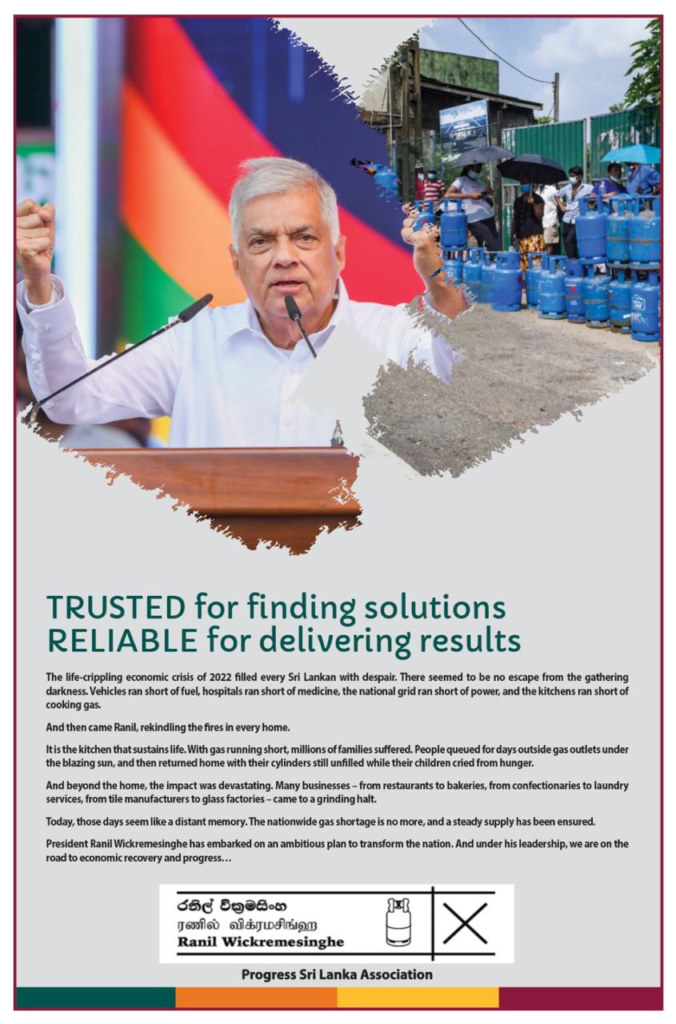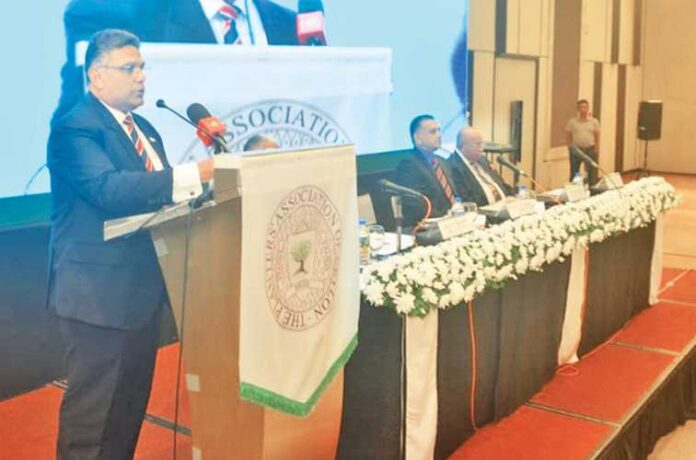September 16, Colombo (LNW): The Planters’ Association of Ceylon (PA) announced a revised wage structure, marking the first such change since 1992.
Sunil Poholiyadde, the re-elected Chairman of the PA, addressed the 170th Annual General Meeting held in Colombo, emphasising the unanimous decision to set a basic wage of Rs. 1,350, complemented by a productivity component of Rs. 50 per kilo.
This new structure, which was officially gazetted on Friday, is set to remain unchanged for the next three years.
However, Poholiyadde expressed concerns about Sri Lanka’s tea production targets for the year, casting doubt on the likelihood of reaching the anticipated 300 million kilos, suggesting instead that 250 million kilos might be more realistic.
He underscored the urgent need for technological advancements and innovative approaches to meet production demands.
The PA, he noted, faces immediate challenges, chief among them being the stalled diversification efforts within the sector.
With climate change posing an increasing threat, Poholiyadde stressed that the sustainability of plantation businesses hinges on diversifying into other crops.
Outgoing PA Chairman Senaka Alawattegama echoed this sentiment, outlining the persistent challenges within the industry. He highlighted the prolonged and complex wage negotiations, emphasising the industry’s consistent advocacy for productivity-linked wages.
He pointed out that definitive reforms had been a long-standing necessity. “We have made strides towards this end,” Alawattegama said, “but the journey is far from over.”
Alawattegama also addressed the broader issues of crop diversification and oil palm cultivation. While significant progress has been made in navigating the political and environmental hurdles surrounding oil palm, the sector still faces obstacles due to ongoing resistance rooted in misinformation.
He noted that although they are close to overcoming these barriers, more decisive action is needed to fully harness the potential benefits of oil palm cultivation.
Additionally, he drew attention to the challenges faced by the rubber sector, which has been adversely affected by erratic weather patterns and diseases like Circular Spot Leaf Disease.
These difficulties have strained the capacity of Regional Plantation Companies (RPCs) to maintain wage payments, yet the PA remains committed to ensuring fair compensation for workers.
The PA emphasised that oil palm cultivation is a crucial avenue for diversification within the plantation industry, advocating for informed decision-making based on facts rather than misconceptions.
Alongside this, Alawattegama called for greater incentives to support crop diversification, as well as investment in research and development.
He emphasised that the integration of modern technology, such as mechanisation, precision agriculture, and agri-tech, is not merely an option but a necessity for the industry’s future sustainability.
He pointed out that many RPCs have already taken steps to introduce high-value crops like coffee, avocado, and spices, reflecting an evolving approach to plantation management.
Despite these efforts, he acknowledged that the plantation industry operates on long-term investment cycles, necessitating consistent and rational policy-making for sustainable growth.
Additionally, he recognised the growing global demand for sustainably produced goods, highlighting the need for the industry to align with these evolving market expectations.
As the PA navigates the complex landscape of plantation management in the face of climate change, market demands, and economic pressures, the call for strategic diversification and technological adoption is clear.




